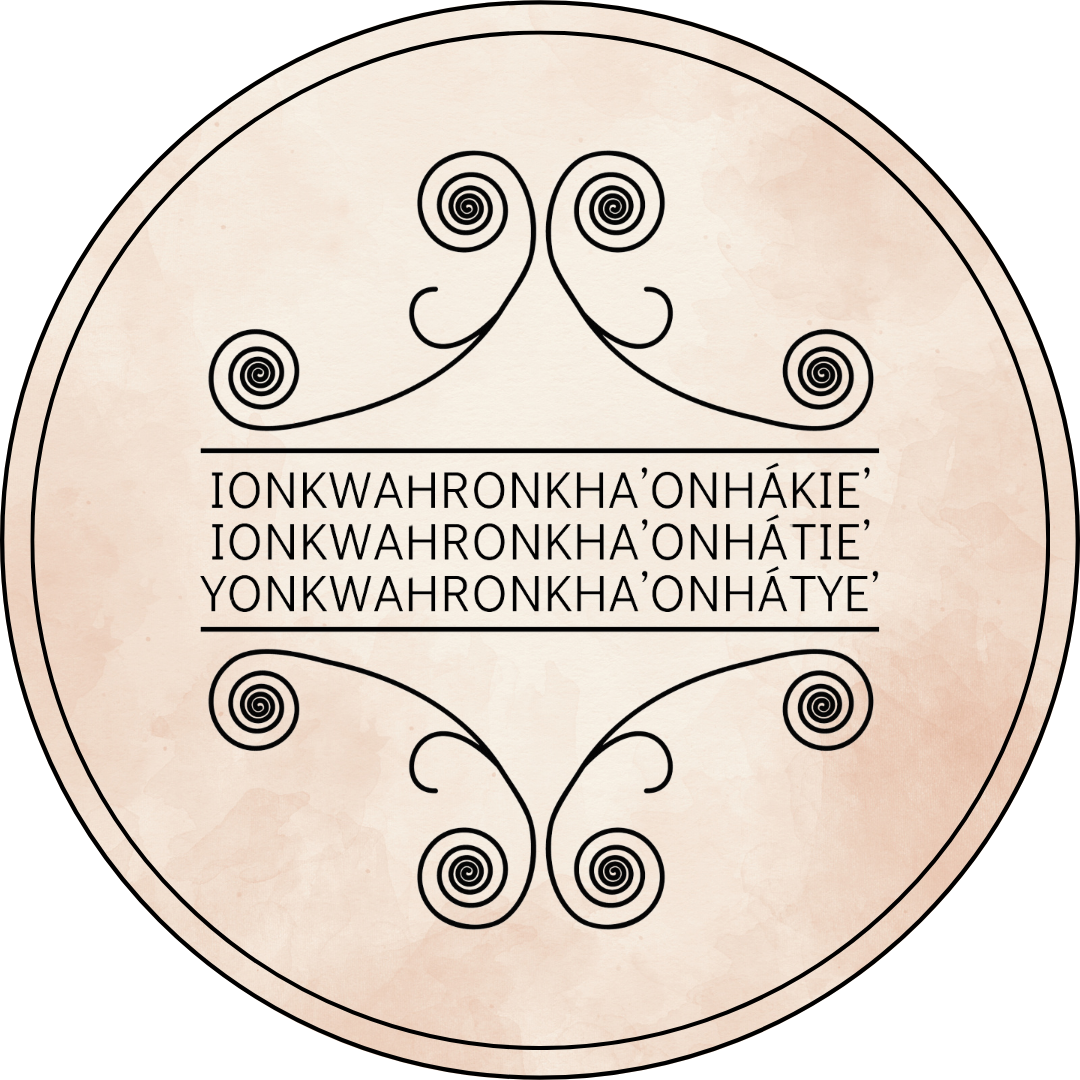About
Our Story
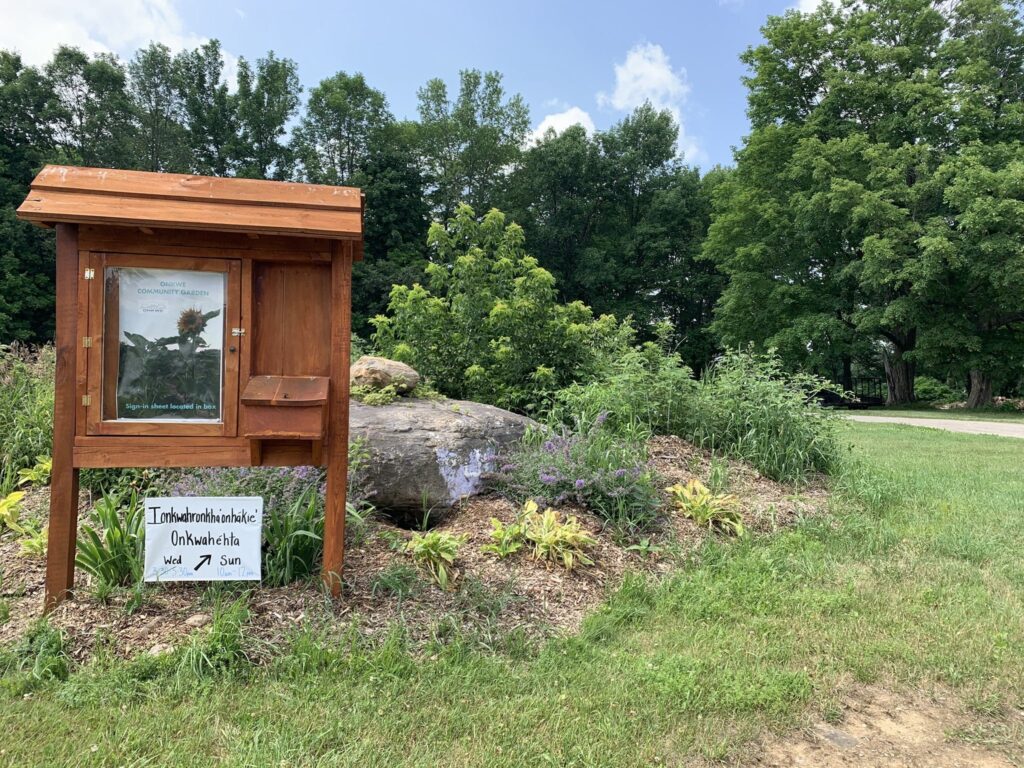
Ionkwahronkha’onhátie’ was started by three young Kanien’kehá:ka women in the summer of 2019. Two of the participants were recent graduates of the Ratiwennahní:rats adult Kanien’kéha immersion program in Kahnawà:ke and one had graduated from and was teaching at the Onkwawén:na Kentyóhkwa program in Ohswé:ken. The first project completed by Ionkwahronkha’onhátie’ was a 10-week summer immersion intensive called Akenhnhà:ke in 2019.
The initial purpose of Ionkwahronkha’onhátie’ was to provide continued language learning opportunities for these graduates to continue to build their speaking proficiency after adult immersion program completion outside of language programs and schools. One key goal of Ionkwahronkha’onhátie’ was to build relationships between second language learners and first language speakers to establish, maintain and grow a community of Kanien’kéha speakers and learners across communities. Another key goal of Ionkwahronkha’onhátie’ was to diversify and expand opportunities for emerging second language speakers to work in an immersion environment outside of the field of education.
Since 2019, Ionkwahronkha’onhátie’ has developed a network of second language speakers across Kanien’kehá:ka communities, developed relationships with first language speakers, created opportunities and spaces for speakers to use their language in the community, offered opportunities for cultural learning through the medium of Kanien’kéha and built momentum and expanded the vision of what Kanien’kehá:ka language and culture revitalization is in the twenty-first century.
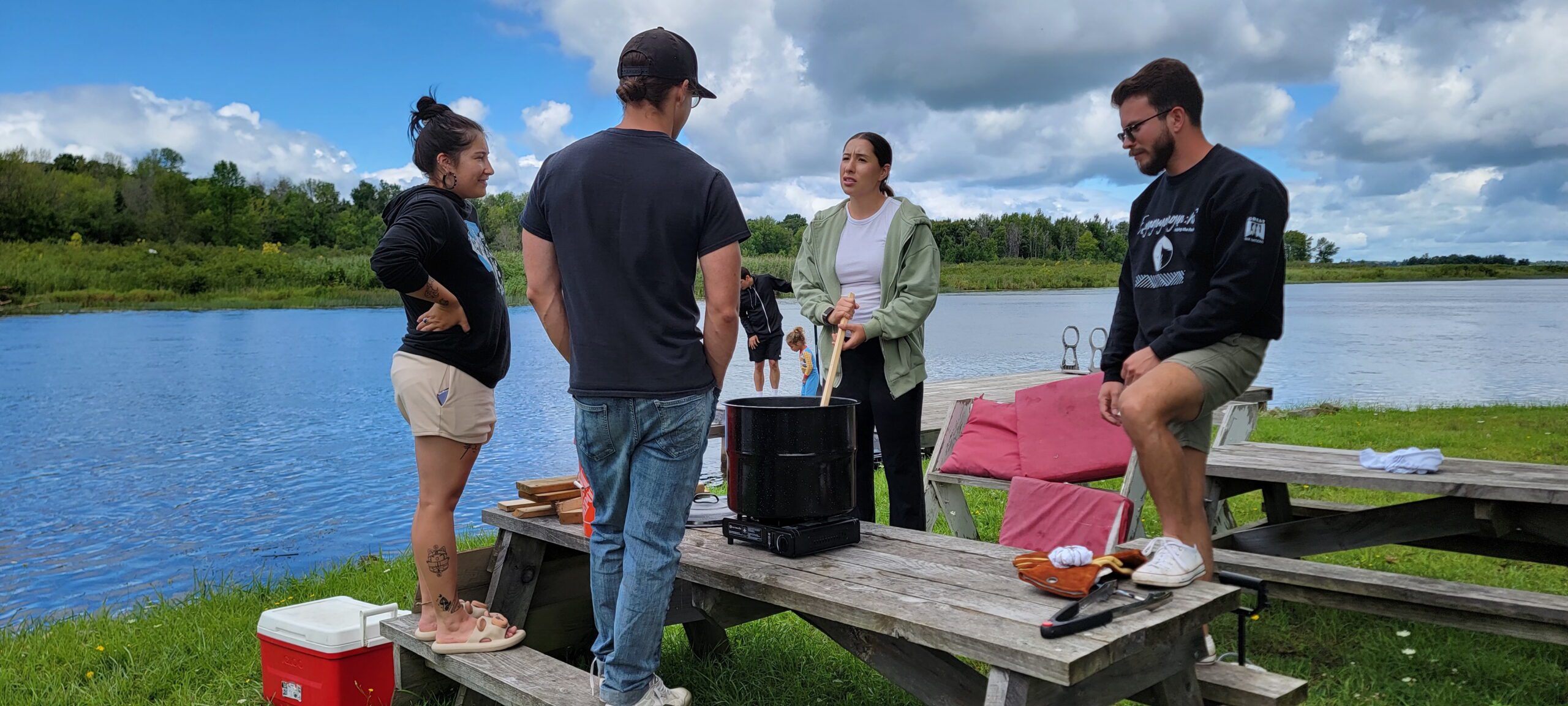
Vision
Ionkhwahronkha’onhátie’s vision is to provide extended pathways for communities of adult Kanien’kéha language learners beyond current programs to support language learning and language use for Onkwehonwehnéha to be the language of interaction.
Mission
Ionkhwahronkha’onhátie’s mission is to support self-motivated adult Kanien’kéha language learners to increase their Onkwehonwehnéha proficiency by co-creating opportunities in supportive immersive environments to speak Onkwehonwehnéha, intergenerationally and across communities.
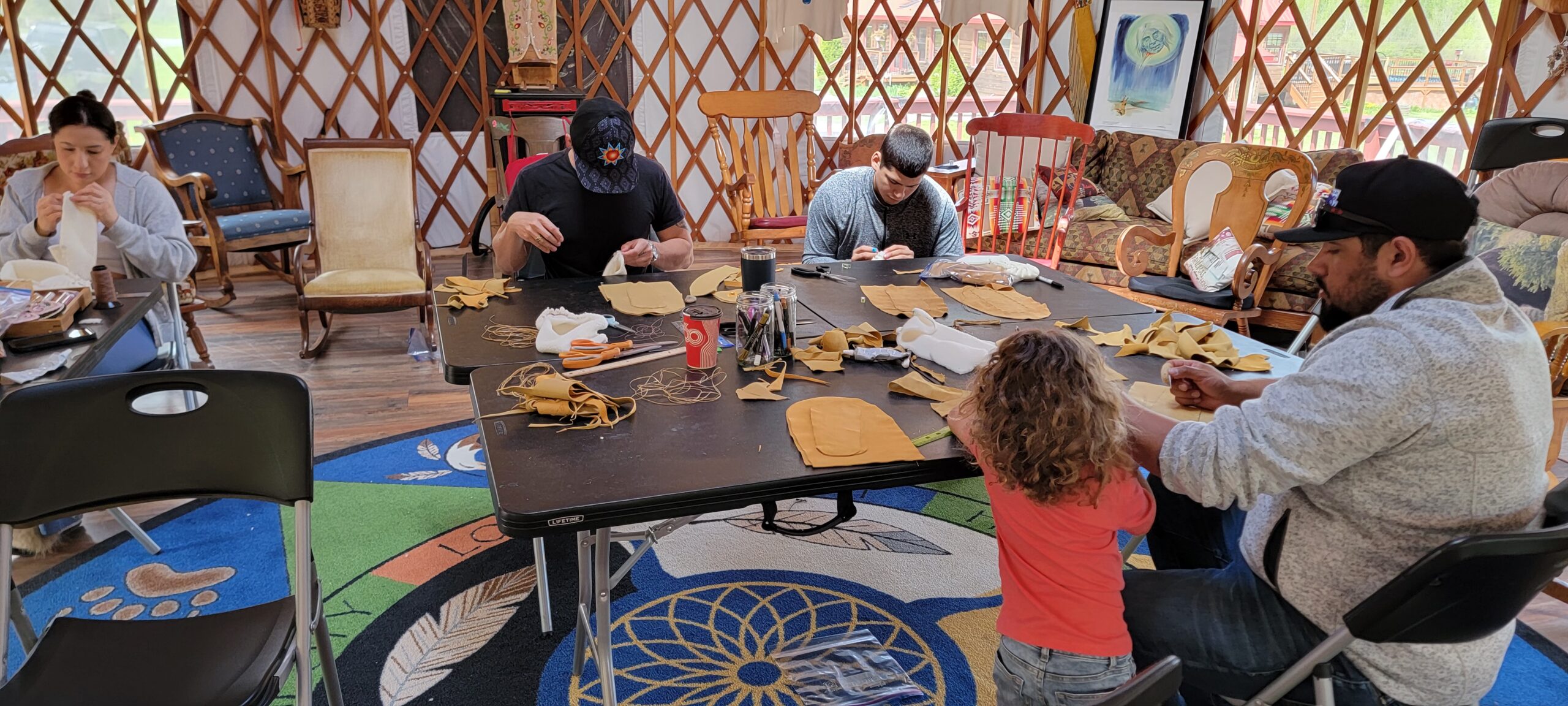
Our Goals
Ionkhwahronkha’onhátie’s vision is to provide extended pathways for communities of adult Kanien’kéha language learners beyond current programs to support language learning and language use for Onkwehonwehnéha to be the language of interaction.
1.
Provide year-round opportunities for advanced level Kanien’kéha language learners to gather to increase their Onkwehonwehnéha proficiency.
2.
Create and grow an expanding network of advanced(+) level Kanien’kéha language learners.
3.
Create safe and supportive aóskon Onkwehonwehnéha social environments to optimize Kanien’kéha language learning.
4.
Re-center our elders and first language speakers to prioritize language and knowledge transmission.
5.
Mobilize knowledge, build capacity, and provide language learning support for Kanien’keha language learners to increase their Onkwehonwehnéha speaking proficiency within our programming.
6.
Document and preserve the Kanien’kéha language by audio and video recording first language speakers speech to support second language learning and to document and maintain quality of language for current and future generations.
Philosophies
1. Language and culture are tied. Onkwehonwehnéha is a way of living. Onkwehonwehnéha proficiency development or learning refers to the learning of both language and culture simultaneously, in community.
2. Prioritizing, building, and maintaining healthy intergenerational relationships between first-language-speaking elders and learners is crucial to Onkwehonwehnéha proficiency development, growth, and maintenance.
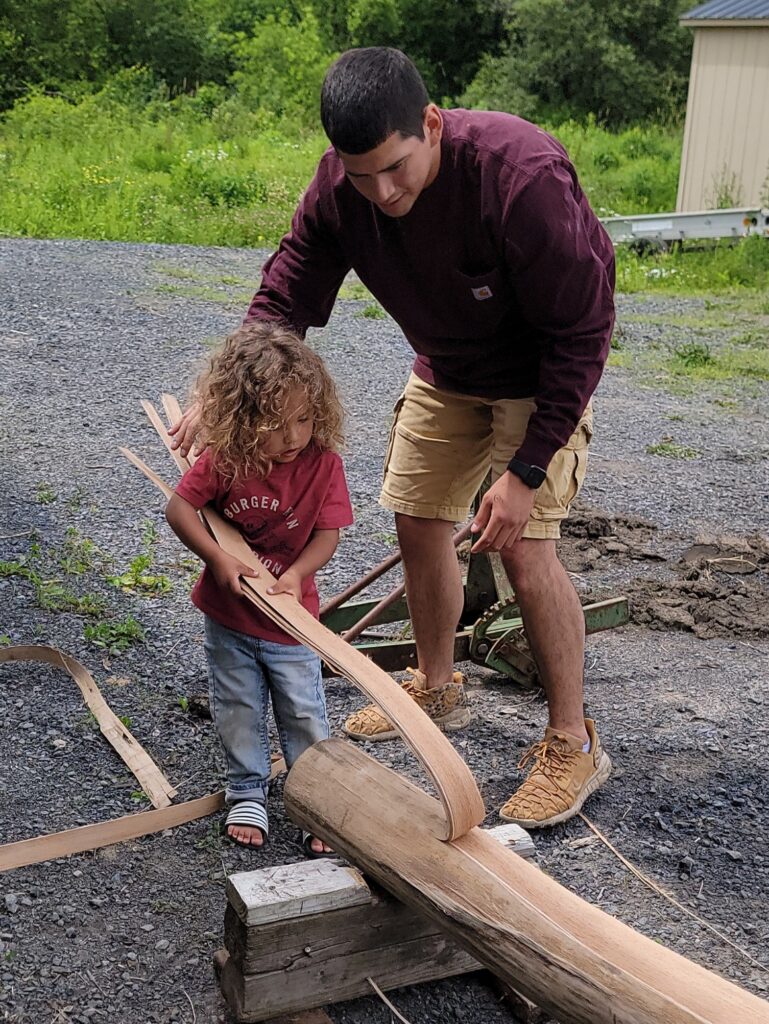
3. Collaborative Onkwehonwehnéha immersion environments are the most effective for building Onkwehonwehnéha proficiency in individuals, families, and communities.
4. Onkwehonwehnéha development in each learner is best supported through encouraging the creative expression of each individual’s passions, interests, identity, and knowledge mobilization within the group and greater learner community.
5. Responsibility for a person’s Onkwehonwehnéha proficiency development lies with both the individual and the community. It is a lifelong process.
6. Self-motivated learners are responsible for assessing, planning, implementing, monitoring, and tracking their Onkwehonwehnéha proficiency development using a variety of resources, supports, and tools.
7. Having fun while learning in dynamic activities without fear of making mistakes is crucial to Onkwehonwehnéha proficiency development. Learners support one another to step out of their comfort zones and act as resources to identify learning gaps and to celebrate learning success and achievement.
